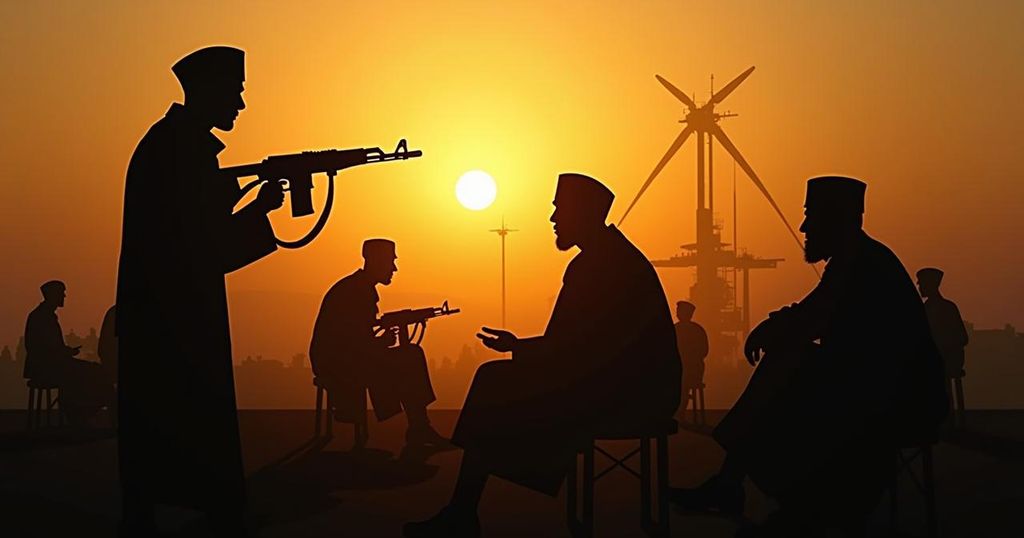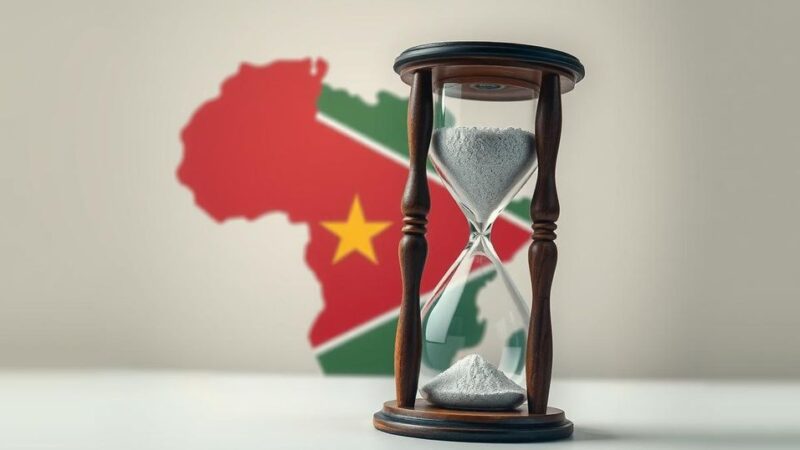Iran is attempting to stabilize its proxy Hezbollah as Israel intensifies military actions against its leadership. Iranian Foreign Minister Abbas Araghchi reassured Lebanon of Iran’s support, though this was met with public backlash. The crisis invites regional stakeholders to consider Lebanon’s future without Hezbollah, signaling a potential shift in the political landscape.
In recent weeks, the political and military dynamics in Lebanon have undergone significant changes, primarily due to Israeli military actions targeting leaders of Hezbollah, the formidable proxy force of Iran in the region. As Israel systematically dismantles Hezbollah’s leadership, Iranian officials are mobilizing to exert influence and maintain their presence in Lebanon. The Iranian Foreign Minister, Abbas Araghchi, recently traveled to Beirut and Damascus, where he asserted Iran’s commitment to support Lebanon amidst the unfolding crisis. However, this promise has been met with skepticism and outrage from the Lebanese populace, who express feelings of betrayal and blame Iran for their current plight. The sentiment on social media is particularly rife with criticism towards Iran, with numerous individuals pointing out the destructive impact of Iranian involvement in Lebanon. The geopolitical landscape is shifting as regional powers start to contemplate a future for Lebanon that may not include the enduring influence of Hezbollah, raising concerns about the potential restructuring of power in the country.
The situation in Lebanon is undergoing critical transformation largely attributed to ongoing military confrontations between Israeli forces and Hezbollah. The repercussions of these confrontations are being felt deeply by the Lebanese population, as Hezbollah’s capacity to operate is increasingly compromised. With the Iran-Hezbollah alliance under strain, discussions are emerging regarding the future of Lebanon without Hezbollah’s presence, prompting regional powers to reconsider their strategies. Iran’s active role in Lebanon is historically rooted in its desire to bolster its influence through proxies, yet recent events have exposed vulnerabilities that may reshape Lebanon’s political landscape.
In conclusion, Iran’s commitment to support Hezbollah in Lebanon comes at a time of heightened tension and instability, with Israel’s targeted operations severely affecting the organization’s leadership structure. As Lebanese citizens respond to Iranian pledges with frustration, the region stands at a crossroads, contemplating a future adjustment of power dynamics that could lead to a post-Hezbollah Lebanon. The evolution of these circumstances will significantly alter the geopolitical environment, prompting a reevaluation of alliances and strategies among Middle Eastern countries.
Original Source: www.haaretz.com






